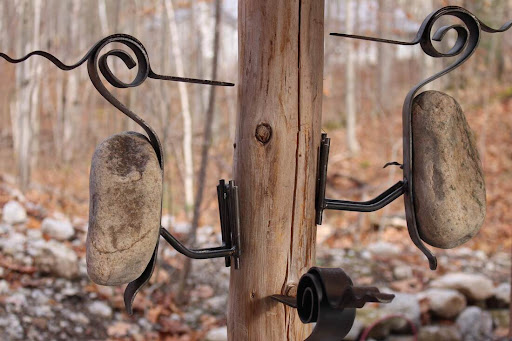When it comes to outdoor applications, choosing the right materials is crucial for longevity and performance. Metals, in particular, are popular for a variety of outdoor projects due to their strength and aesthetic appeal. But what metals last outdoors the longest? In this article, we’ll explore the characteristics and durability of several metals commonly used outdoors, helping you make informed decisions for your projects.

Why Choose Metal for Outdoor Use?
Before we delve into specific metals, it’s important to understand why metal is a preferred choice for outdoor installations. Metals are known for their strength, versatility, and ability to withstand harsh weather conditions. They can be molded into various shapes and designs, making them ideal for creative projects like metal wind spinners and other garden art.
Factors Affecting Metal Durability Outdoors
Several factors influence a metal’s performance outdoors, including:
- Corrosion resistance
- Oxidation and rust
- Maintenance requirements
- Environmental conditions
Understanding these factors will help you choose the right metal for your specific needs.
Top Metals for Outdoor Durability
1. Stainless Steel
Stainless steel is renowned for its corrosion resistance and strength, making it a top choice for outdoor applications. It contains chromium, which forms a passive layer that prevents rust and other forms of corrosion. Stainless steel is often used in garden art due to its sleek appearance and minimal maintenance requirements.
2. Aluminum
Aluminum is another excellent option for outdoor use. It is lightweight, resistant to rust, and does not corrode easily. Additionally, aluminum can be anodized for added protection and aesthetic appeal. Its resistance to harsh weather makes it ideal for outdoor furniture and decorative pieces.
3. Galvanized Steel
Galvanized steel is steel that has been coated with a layer of zinc, which provides a protective barrier against corrosion. This makes it a popular choice for outdoor structures such as fences and sheds. Regular maintenance, such as repainting, can enhance its longevity.
4. Copper
Copper is valued for its unique aesthetic, developing a natural patina over time that enhances its visual appeal. While it is resistant to rust, it can still corrode under certain conditions. Copper is commonly used in outdoor fixtures and decorative elements.
5. Corten Steel
Corten steel, also known as weathering steel, is designed to form a rust-like appearance that protects the steel beneath. This self-protecting quality makes it suitable for outdoor sculptures and installations. Its rustic look is particularly popular in modern landscaping.
Maintaining Metal for Outdoor Use
Proper maintenance is essential to extend the lifespan of metals used outdoors. Here are some tips:
- Regular cleaning to remove dirt and debris
- Applying protective coatings or sealants
- Checking for signs of wear or corrosion
- Immediate repairs to prevent further damage
For detailed preservation methods, consider this guide on preserving metal beauty.
Environmental Impact
Choosing durable metals for outdoor applications also has environmental benefits. Long-lasting materials reduce the need for frequent replacements, minimizing waste and resource consumption. Additionally, many metals are recyclable, further reducing their environmental footprint.

Conclusion
Understanding what metals last outdoors is key to selecting the right material for your project. By considering factors like corrosion resistance, maintenance, and environmental conditions, you can ensure the longevity and success of your outdoor installations. Whether you’re creating a stunning piece of garden art or building a durable structure, the right metal makes all the difference.
FAQ
1. What is the best metal for outdoor furniture?
Stainless steel and aluminum are excellent choices due to their resistance to corrosion and strength.
2. How can I prevent metal corrosion outdoors?
Applying protective coatings and regular maintenance can help prevent corrosion.
3. Is copper suitable for outdoor use?
Yes, copper is suitable and develops a beautiful patina over time, although it may require some maintenance.
This article contains affiliate links. We may earn a commission at no extra cost to you.

